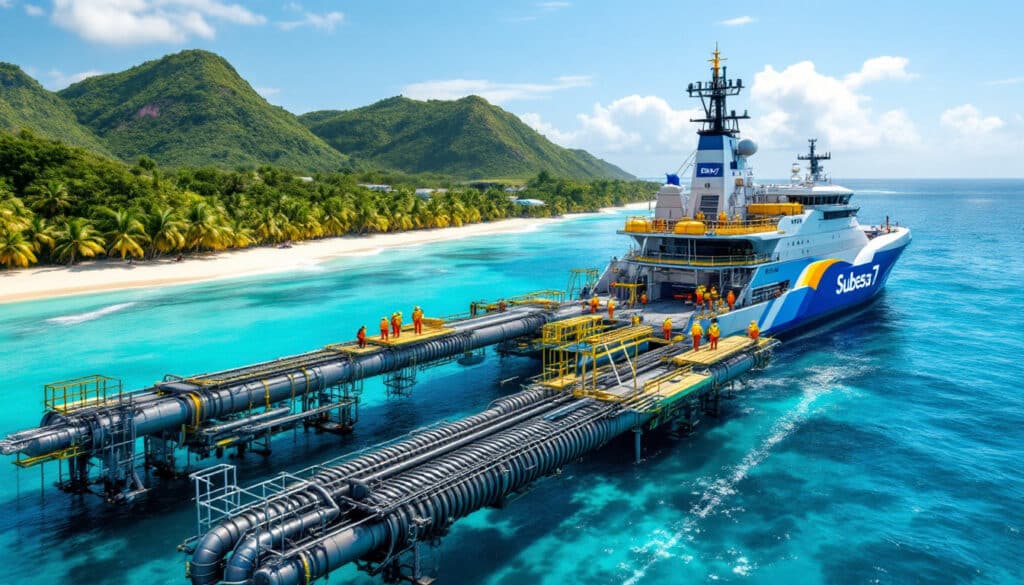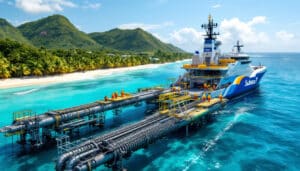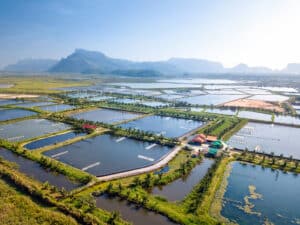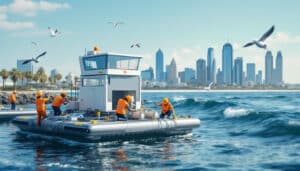Modern technologies are transforming the way we interact with the web. The management of personal data lies at the heart of this revolution. Understanding the use of cookies is essential for safe navigation.
By using cookies and data, we ensure the delivery and maintenance of the services offered. This also allows us to track interruptions and guard against spam, fraud, and abuse. Moreover, we measure public engagement and site statistics to better understand the use of our services and improve their quality. Depending on your choices, we can develop new services, adapt content and advertisements in a personalized way, or simply provide non-personalized content based on your current activity and location.
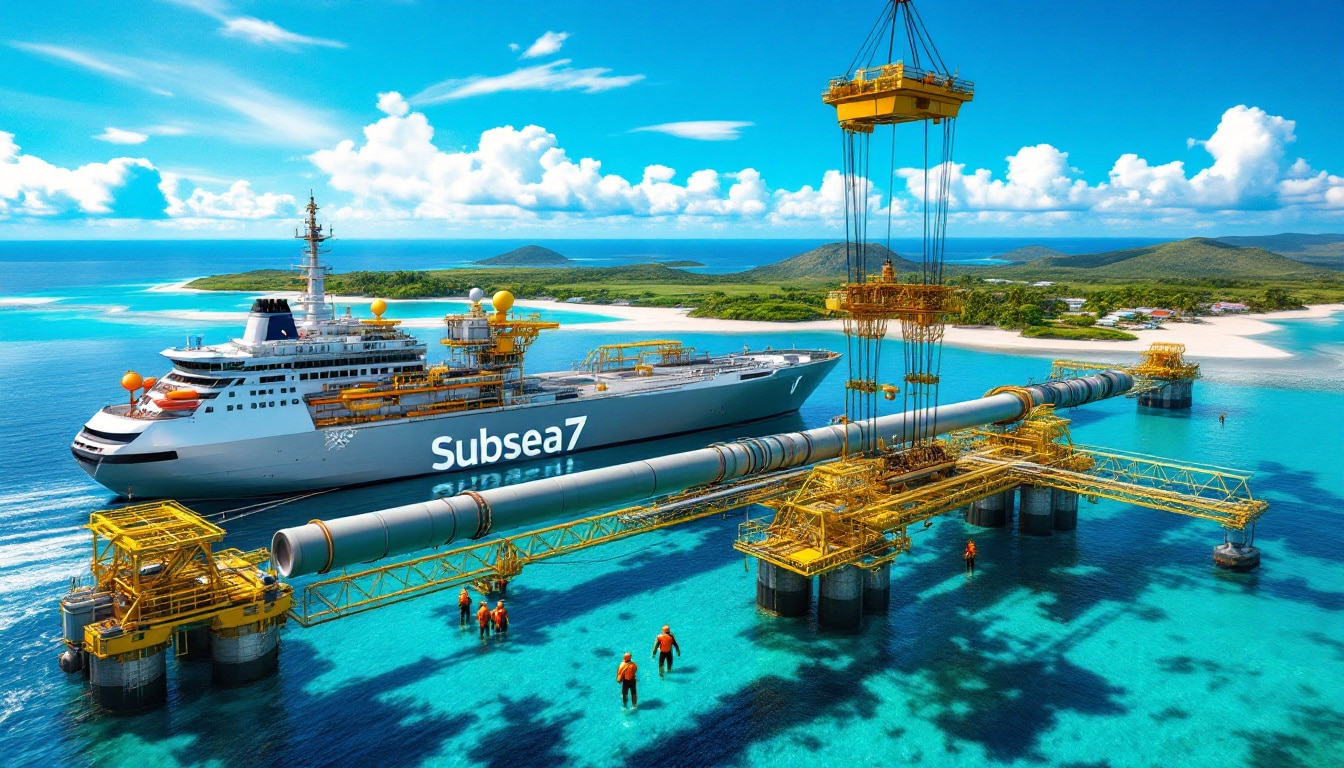
Table of Contents
ToggleSubsea7 secures a contract for a strategically important project in West Africa
Subsea7, a global leader in underwater engineering and construction, recently signed a major contract for a project located in West Africa. This contract represents a significant step for the company, reinforcing its presence on the African continent and highlighting the strategic importance of maritime initiatives in this region.
What are the details of the contract signed by Subsea7 in West Africa?
The contract signed by Subsea7 concerns the development of underwater infrastructure aimed at supporting the oil and gas industry in West Africa. This project involves the installation of pipelines, production structures, and automated management systems, thus meeting the region’s growing energy needs. With an estimated value of several hundred million euros, this contract marks one of Subsea7’s most significant collaborations in Africa.
The project also plans to use advanced technologies to ensure the safety and efficiency of underwater operations. Subsea7 will leverage its marine engineering expertise, ensuring delivery compliant with international standards and local stakeholders’ expectations.
Why is this project strategically important for Subsea7 and West Africa?
This project is strategically important for both Subsea7 and West Africa. For Subsea7, it is about consolidating its position in an expanding market where the demand for high-tech underwater infrastructure is constantly increasing. West Africa, rich in natural resources, represents fertile ground for investment in the maritime sector, offering opportunities for sustainable growth.
For West Africa, this project is crucial as it contributes to the development of energy infrastructure, essential to support the region’s economic growth. Improving energy production and distribution capacities meets the growing needs of local industries and stimulates technological innovation.
What are the expected impacts of this project on the local economy and the environment?
The economic impact of this project is twofold. On one hand, it creates numerous direct and indirect job opportunities, promoting skill transfer and the development of local talent. On the other hand, it stimulates the regional economy through investment in infrastructure and related services.
In terms of the environment, Subsea7 is committed to adopting sustainable practices that respect the marine ecosystem. The project includes strict measures for biodiversity protection and natural resource management, thus minimizing the ecological footprint of underwater operations.
Furthermore, drawing inspiration from initiatives like those of Carnegie Clean Energy, Subsea7 integrates innovative technologies aimed at reducing carbon emissions and promoting the use of renewable energy.
What technologies will Subsea7 use for this project?
Subsea7 plans to use a range of advanced technologies to ensure the success of this project. Among these, the use of autonomous underwater robots for the inspection and maintenance of infrastructure will be paramount. These robots allow for continuous monitoring and quick intervention when needed, thereby increasing the reliability of operations.
In addition, the project will incorporate real-time data management systems, facilitating decision-making and performance optimization. The integration of the Internet of Things (IoT) will allow the collection and analysis of critical data to anticipate maintenance needs and improve process efficiency.
By drawing inspiration from asset management strategies of Margaret’s Pav and Heidi, Subsea7 is adopting an innovative approach to optimize resource use and ensure effective management of underwater assets.
What is the impact of this contract on Subsea7’s reputation in the maritime industry?
This contract enhances Subsea7’s reputation as a key player in the global maritime sector. By winning such a large-scale project in West Africa, the company demonstrates its ability to handle complex projects and adapt to diverse environments. This also solidifies its position against competitors and paves the way for new business opportunities in other regions of the world.
Moreover, this success serves as a reference for future projects, showing that Subsea7 is capable of combining technological innovation with adherence to environmental standards. By actively participating in sustainable initiatives, Subsea7 positions itself as a responsible leader committed to the sustainable development of the maritime industry.
Additionally, Subsea7’s involvement in similar projects, such as those carried out by Resqunit, enhances their image as an innovative and reliable company capable of meeting modern challenges in the energy industry.
What future prospects does this contract open for Subsea7 and the maritime sector in West Africa?
This contract opens numerous prospects for Subsea7 and the maritime sector in West Africa. For Subsea7, it represents an opportunity to strengthen local partnerships and develop new collaborations with regional players. This growth dynamic could lead to the company’s expansion into other African countries, thus increasing its market share and influence in the maritime sector.
For the maritime sector in West Africa, this project is a catalyst for innovation and technological development. The introduction of advanced technologies and sustainable practices stimulates regional competitiveness and encourages investments in other related areas, such as renewable energies and marine resource management.
Moreover, this project contributes to the training of local professionals, thereby increasing skill levels and fostering the emergence of new expertise in the maritime field. By relying on similar initiatives like those undertaken by Equinor, Subsea7 underscores the importance of investing in human capital to ensure sustainable and inclusive growth.
In summary, this strategic contract positions Subsea7 as a key player in West Africa while significantly contributing to the economic and technological development of the region. The positive impacts of this project should be felt in the long term, paving the way for future collaborations and continuous improvement of African maritime infrastructures.

